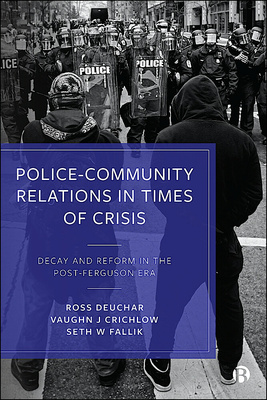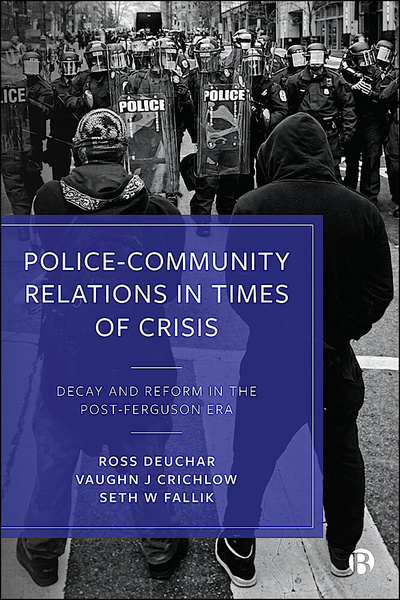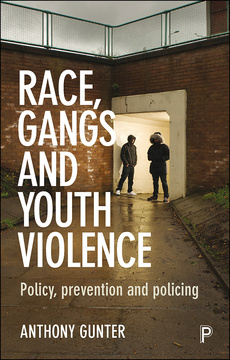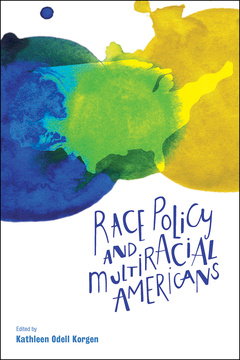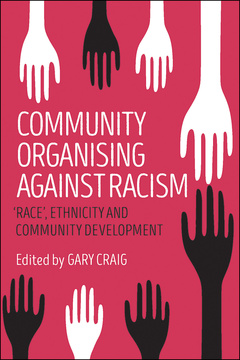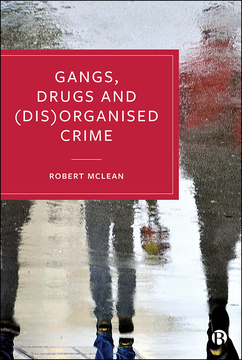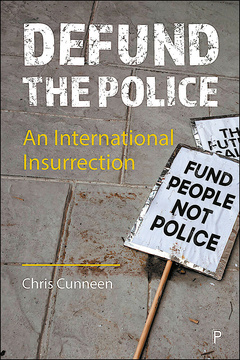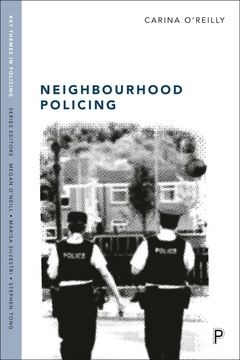Police–Community Relations in Times of Crisis
Decay and Reform in the Post-Ferguson Era
By Ross Deuchar, Vaughn Crichlow and Seth Fallik
Published
30 Apr 2021Page count
226 pagesISBN
978-1529210613Dimensions
234 x 156 mmImprint
Bristol University PressPublished
30 Apr 2021Page count
226 pagesISBN
978-1529210606Dimensions
234 x 156 mmImprint
Bristol University PressPublished
30 Apr 2021Page count
226 pagesISBN
978-1529210637Dimensions
234 x 156 mmImprint
Bristol University PressPublished
30 Apr 2021Page count
226 pagesISBN
978-1529210637Dimensions
234 x 156 mmImprint
Bristol University PressDownload the policy briefing.
2021 Division of Policing awards: Winner of the 2021 Outstanding Book Award
POLICY BRIEFING: Police-community relations in times of crisis
The death of Michael Brown at the hands of a white Ferguson police officer has uncovered an apparent legitimacy crisis at the heart of American policing. Some have claimed that de-policing may have led officers to become less proactive.
How exactly has the policing of gangs and violence changed in the post-Ferguson era? This book explores this question, drawing on participant observation field notes and in-depth interviews with officers, offenders, practitioners, and community members in a Southern American state.
As demands for police reform have once again come into focus following George Floyd’s death, this crucial book informs future policing practice to promote effective crime prevention and gain public trust.
“The exploration by Deuchar et al. of the theory behind strategies positioned to improve police and community relations is valuable for helping practitioners to understand the complexity of police and community relations and how the current situation developed over time. Based on their interviews and observations, they recommend a purposeful plan for improving police community relations that embeds strategies consistent with procedural justice, enhanced transparency, and purposeful outreach.” Police Practice & Research
“Chronicles the disharmony in police–community relations in the post-Ferguson era and expertly captures the trials and tribulations of people who live and work in communities wracked by violence. Timely, poignant, and important.” David Pyrooz, University of Colorado Boulder
“A thoughtful and balanced effort to understand police–community relations in the ‘post-Ferguson era’ – with help from the insightful perspectives of police officers as well as community stakeholders and young people.” Justin Nix, University of Nebraska Omaha
Ross Deuchar is Professor of Criminology and Criminal Justice at the University of the West of Scotland, UK and Affiliate Research Professor within the School of Criminology and Criminal Justice at Florida Atlantic University, US.
Vaughn J. Crichlow is Associate Professor in the School of Criminology and Criminal Justice, and Associate Dean in the College of Social Work and Criminal Justice at Florida Atlantic University, US.
Seth W. Fallik is Assistant Professor and Undergraduate Program Coordinator in the School of Criminology and Criminal Justice within the College of Social Work and Criminal Justice at Florida Atlantic University, US.
Foreword by Scott H. Decker
PART I: Introduction
Policing, Communities, and the “Legitimacy Crisis”: Context and Empirical Approaches
PART II: Police–Community Relations in a New Era of Accountability and Change
High-Profile Shootings, the Media, and Police Legitimacy
The “Ferguson Effect” and Emergence of “De-policing”
Proactive Policing of Gangs: Cops as “Guardians”
Reactive Policing of Gangs: Cops as “Warriors”
PART III: Practitioner and Youth Insights on Police–Community Relations
Police as “Guardians” and “Warriors”: Non-Law Enforcement Insights
The Post-Ferguson Era: The Lived Experiences of Young Men in Racial Minority Communities
PART IV: Conclusion
Future Perspectives on Police–Community Relations







